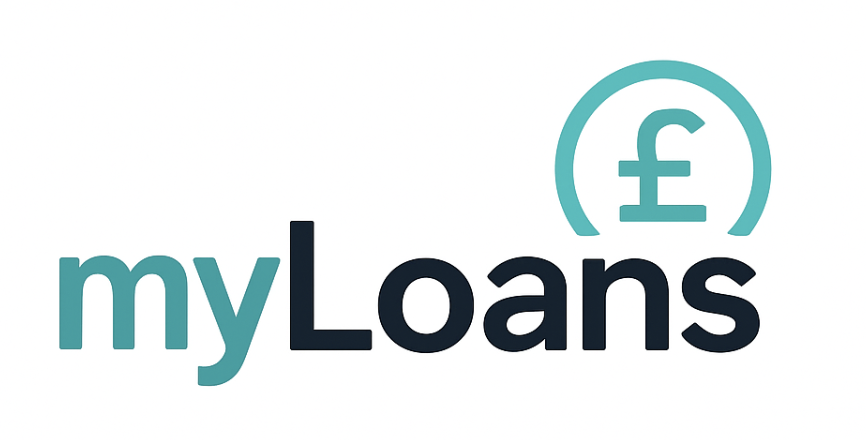Understanding Various Types of Lending Options
A loan is a sum of money borrowed from a lender with the agreement to repay it over time, usually with interest. Loans are a central part of personal and business finance in the UK, helping people manage large purchases, cover emergencies, or consolidate existing debts. Understanding how loans work, the types available, and the costs involved is crucial for making informed financial decisions.
The Anatomy of a Loan
Every loan has three core elements: the principal, which is the amount borrowed; the interest, which is the cost of borrowing; and the repayment terms, which set out when and how you’ll repay. These determine the total cost of borrowing and the impact on your finances. In the UK, lenders are required by the Financial Conduct Authority (FCA) to display a representative APR (Annual Percentage Rate), which makes it easier to compare different products.
Secured vs Unsecured Loans
Loans in the UK are either secured or unsecured. Secured loans are backed by an asset, such as your home or car, which means lower interest rates but the risk of losing the asset if you default. Unsecured loans, such as most personal loans and credit cards, don’t require collateral but often come with higher rates. Understanding the difference can help you decide which option is safest and most affordable for you.
The Role of Interest in Loans
Interest is what you pay the lender for borrowing money. UK loans may come with fixed rates, which stay the same for the duration of the loan, or variable rates, which can change depending on market conditions and the Bank of England base rate. Fixed-rate loans make budgeting easier, while variable-rate loans may offer lower initial payments but carry the risk of rising costs.
Personal Loans
Personal loans are among the most flexible options in the UK, allowing you to borrow for purposes such as debt consolidation, home improvements, or covering unexpected costs. They’re usually unsecured and available from banks, building societies, and online lenders. Typical loan sizes range from £1,000 to £25,000, with repayment terms of one to seven years. Your credit score, income, and debt-to-income ratio will influence the rates offered. Comparison sites like MoneySuperMarket and Compare the Market can help you check rates across different lenders.
Mortgage Loans
If you want to buy property in the UK, you’ll need a mortgage. These are secured loans where the home itself acts as collateral. Mortgages typically come in two forms: fixed-rate, where repayments stay the same for the length of the deal (commonly two, five, or ten years), and tracker or variable-rate, where repayments move in line with interest rates. Unlike the US, most UK borrowers remortgage after their fixed term ends to avoid paying the lender’s higher Standard Variable Rate (SVR). Guidance from resources like MoneySavingExpert can help you compare deals and understand the approval process.
Auto Loans and Car Finance
Cars are often purchased through finance rather than upfront cash. In the UK, common options include Hire Purchase (HP), where you pay monthly and own the car once the final payment is made; Personal Contract Purchase (PCP), which offers lower monthly payments but requires a balloon payment if you want to keep the car; and standard personal loans used for car buying. The size of your deposit and the length of your repayment term can significantly affect costs.
Student Loans
In the UK, tuition fees and maintenance costs can be covered through Student Finance loans. Repayments depend on your income rather than the loan amount, with payments deducted automatically from your salary once you earn above the repayment threshold (currently £25,000–£27,295 depending on your loan plan). Interest is based on the Retail Price Index (RPI). There are different loan plans for England, Scotland, Wales, and Northern Ireland, and some loans are eligible for loan forgiveness programmes. More information is available at GOV.UK Student Finance.
Business Loans
Business owners in the UK can access several types of borrowing. Term loans provide lump sums for investment or expansion, while business overdrafts or lines of credit help with cash flow. Government-backed initiatives, such as the Recovery Loan Scheme, support businesses that might not qualify for traditional lending. Alternatives like merchant cash advances, where repayments are taken as a percentage of future card sales, have also grown in popularity. The British Business Bank offers guidance on business funding options.
Payday Loans
Payday loans are short-term borrowing options designed to cover urgent expenses until your next payday. They are heavily regulated by the FCA to protect borrowers. The rules cap daily interest at 0.8%, limit default fees to £15, and ensure you can never repay more than double what you borrowed. While payday loans can be useful in emergencies, they remain costly compared to alternatives such as credit union loans. You can find more on FCA rules at the Financial Conduct Authority website.
Homeowner Loans and Equity Release
Homeowners may consider borrowing against the equity in their property. Homeowner loans allow you to release value for major expenses like renovations or debt consolidation. These are secured loans, so rates can be lower, but your home is at risk if repayments are missed. Another option for older homeowners is equity release, which lets you access funds tied up in your home without selling it. Guidance is available at MoneyHelper.
Choosing the Right Loan in the UK
With so many borrowing options available, it’s important to compare carefully. Look at the APR, loan term, and fees such as arrangement charges, late payment penalties, or early repayment costs. Your credit score, held by agencies such as Experian, Equifax, and TransUnion, will strongly influence your options. Using comparison sites like MoneySavingExpert can help you find the cheapest borrowing for your circumstances.
Conclusion
Loans are an essential part of financial life in the UK, from mortgages and car finance to personal and business loans. By understanding how loans work, knowing the regulations that protect you, and comparing options carefully, you can borrow responsibly and avoid costly mistakes. Always ensure your chosen loan is affordable, check your credit report before applying, and consider alternatives where possible. Making informed decisions now will help safeguard your long-term financial health.
Alternatives to Payday Loans | Safer Borrowing Options
Payday loans are often marketed as a quick fix for cash emergencies, but they are not the only option available. Whether you’re facing an unexpected bill, car repair, or temporary cash shortfall, there are several alternatives to payday loans that may offer lower...
Payday Loans with Bad Credit | Direct Lender Options
If you’ve been refused credit elsewhere and are wondering whether you can still get a payday loan with bad credit, you’re not alone. Thousands of people in the UK search every month for options like “payday loans with bad credit” or “direct lender payday loans”. While...
Personal Loan Debt Consolidation UK – Is It Right for You?
Juggling multiple credit cards, overdrafts, or loans can be stressful and expensive. A debt consolidation loan allows you to combine everything into a single monthly repayment, often at a lower interest rate. In 2025, UK lenders from high street banks to online...
Emergency Loans UK – How to Borrow Fast in 2025
When an urgent expense hits — like car repairs, medical bills, or a broken boiler — quick access to funds can be essential. In 2025, emergency loans in the UK provide a way to borrow fast, with some lenders offering same-day decisions and payouts. This guide explains...
Top 10 Personal Loan Providers UK 2025 – Rates, Features & Eligibility
The UK personal loan market in 2025 offers more choice than ever, with banks, supermarkets, online lenders, and credit unions all competing for borrowers. The best deal for you depends on your credit score, loan size, and repayment term — but comparing providers side...
Best Debt Consolidation Loans UK 2025 | Top Options
Managing multiple debts can feel overwhelming, especially with credit cards, overdrafts, and personal loans all charging different interest rates. A debt consolidation loan can simplify your finances by rolling everything into one fixed monthly repayment — often at a...
Best Bad Credit Loans UK 2025 – Top Lenders Compared
Having a poor credit score, CCJs, or past defaults doesn’t mean borrowing is out of reach. In 2025, several UK lenders specialise in products designed for people with bad credit — offering smaller loans, flexible repayment terms, and eligibility checks that won’t harm...
Home Repair Loans UK – How to Cover Unexpected Costs in 2025
A leaking roof, broken boiler, or urgent plumbing issue can quickly turn into an expensive problem — often when savings aren’t available. In 2025, home repair loans in the UK provide a way to spread the cost of essential fixes into manageable monthly repayments. This...
Green Energy Loans UK – How to Finance Eco-Friendly Home Improvements in 2025
Eco-friendly upgrades such as solar panels, insulation, heat pumps, and EV chargers can cut energy bills and boost property value — but they require a significant upfront investment. In 2025, green energy loans in the UK provide a way to spread the cost of sustainable...
Moving House Loans UK – How to Cover Relocation Costs in 2025
From deposits and removal vans to solicitor fees and new furniture, moving house in the UK can quickly add up to thousands of pounds. Not everyone has savings set aside to cover these costs upfront. In 2025, moving house loans in the UK provide a way to spread...
Education Loans UK – How to Fund Studies and Professional Courses in 2025
Not all education in the UK is covered by government student finance. Postgraduate degrees, professional qualifications, and private training often require self-funding — with tuition fees and course costs running into thousands of pounds. In 2025, education loans in...
Holiday Loans UK – How to Spread the Cost of Travel in 2025
Holidays can be some of the most rewarding experiences of the year, but they often come with a price tag that’s hard to cover upfront. From flights and hotels to all-inclusive packages and once-in-a-lifetime trips, the costs can add up quickly. In 2025, holiday loans...
Best Personal Loans UK 2025 – Top Lenders Compared
The UK personal loan market in 2025 is more competitive than ever, with high street banks, supermarkets, online lenders, and credit unions all offering products to suit different needs. Choosing the right provider can save you hundreds in interest and ensure...
Medical Loans UK – How to Finance Healthcare Costs in 2025
While the NHS covers most essential treatment, waiting lists, private care, and specialist procedures mean many people face out-of-pocket medical expenses. From dental work and fertility treatment to cosmetic surgery and urgent private healthcare, costs can run into...
Car Loans UK – Personal Loan vs Hire Purchase vs PCP in 2025
Buying a car in 2025 usually means more than just choosing the right vehicle — it also means deciding how to pay for it. In the UK, the three main options are a personal loan, hire purchase (HP), or personal contract purchase (PCP). Each has its own advantages,...
















